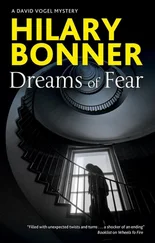‘Look. I need to speak to my husband urgently. Can you help? Please. I’m desperate.’ As I did the first time I called, I allowed a note of hysteria to creep into my voice. Once again, given the circumstances, that wasn’t difficult.
The young man responded almost without hesitation. ‘Yes, of course, Mrs Anderton. I can patch you through on our VoIP line directly to Jocelyn. It isn’t usual company policy, but under these tragic circumstances I’m sure we can bend the rules.’
I thanked him and waited.
After a minute or two another, older male voice, just a bit fainter, came on the line.
‘Hello, Mrs Anderton, you’re through to the manager’s office on Jocelyn. We’ve sent someone to fetch your husband. It shouldn’t take long. Just hold on.’
I held on. Until eventually I heard Robert’s voice. ‘Darling, what is it? Are you all right? Has something else happened?’
I didn’t reply. Instead I hung up on him. I still had no wish to speak to the man. But now I knew that he was on Jocelyn for certain. As far as that was concerned he had been telling the truth. Or his version of it. And certainly he could not have been the intruder.
I made myself more tea. This was crazy. Maybe the police were right after all. Had I been having a nightmare, and had the noises I was so certain that I’d heard downstairs just been part of it?
Yet I was still sure of myself, really, and quite sure about the disappearance of my iPod and Robbie’s camcorder. But I could make absolutely no sense of the events of the night before, and certainly nobody else was going to believe me.
My mobile rang then, and I saw Robert’s Skype number flash up. I let the call go to 121, but I did listen to his message: ‘Marion, you must tell me what’s going on. Why did you call me here through the office? And why didn’t you speak to me? If you don’t pick up, I shall come home.’
That’s what I’d been afraid of. Whatever happened, I couldn’t face that. I hurried to the study, jacked up our computer and used Skype to call him back. He was waiting online as I’d expected him to be. He answered very quickly.
‘It’s OK, I just wanted to know exactly where you were,’ I told him without prevarication.
‘You mean, you were checking up on me?’ He had the nerve to sound rather indignant.
‘I suppose I was, yes. And can you blame me?’
He changed his tone at once.
‘No, I suppose I can’t, can I? But, look, I do so worry about you. I want to put everything right. I could easily get more leave again, you know—’
‘No, Robert, let’s just try to do what we normally do. We’re used to time apart. Let’s do what we’re used to. And maybe we can get through this somehow.’
‘Do you really think so?’
‘Yes, of course, yes.’
There had been such hope in his voice that I felt almost guilty when I so easily lied in my reply. But all that mattered really was keeping him at bay. I knew I couldn’t cope with having him home, and I certainly couldn’t cope with how he would react if he knew about the night-time intruder.
After I’d extricated myself from the call I did something I’d been meaning to do ever since Robert had confessed to also being Rob Anderton. I searched the house from top to bottom looking for any paperwork in the name of Anderton, or any reference at all to a Rob Anderton, or to a lottery win or a bank account showing an appropriate balance. I found absolutely nothing. Robert had covered his tracks well, it seemed. But then, he had been my husband, if not absolutely legally, for sixteen years without ever raising my suspicions.
Frustrated and fed up, I made a snap decision. If I was going to hang on to what remained of my sanity, I had to give myself something else to think about other than the terrible chain of events that had engulfed me.
I called the headmistress’s office at Okehampton College and when I was put through to Mrs Rowlands told her I was ready to come back to work.
She expressed concern and mild surprise, asking: ‘Are you quite sure?’
But when I said I was, I thought I caught a sigh of relief.
‘We certainly need you,’ she continued. ‘It’s black Monday here. Some sort of autumn flu bug seems to have hit the staffroom. I have three people off sick today, including our new, regular part time English teacher. I don’t suppose you could work every morning for a bit?’
‘I certainly can,’ I replied. And I felt mildly cheered for the first time since Robbie’s death.
It was always good to feel needed. And I had to do something. I’d spent enough time sitting around an empty house all day torturing myself.
‘Can you start tomorrow?’ Mrs Rowlands asked.
‘I certainly can,’ I repeated.
Later that afternoon I briefly called everyone I knew — that small list again: my dad, Gladys, Bella, the Farleys — to tell them about my return to teaching. I hoped it might stop them fussing over me and, most of all, lessen the danger of any of them turning up on my doorstep uninvited. My calls to Dad and Gladys were both diverted to answer services, which suited me fine. I knew it was wrong of me in view of Dad being Dad and Gladys having been so kind, but I didn’t really want to talk to either of them. Ellen, Tom’s wife, answered the Farley phone, and I kept that call as short as I politely could. Bella also answered her mobile straight away. But it was she, after welcoming my news, who cut the call short.
‘We’re just walking back from school, had to go to one of those parent — teacher meetings,’ she said. ‘But why don’t we try to get together next weekend? Take the dogs to the beach perhaps? And if there’s anything I can do to help...’
I then emailed Robert for the same reason. I was still afraid that he might take emergency leave again, and if he knew I was back at work, full-time in fact, and apparently doing my best to return to normality, he would hopefully be less likely to do so.
Of course, nothing could take my mind off losing Robbie. Even though there can be few activities more diverting than trying to ram the wonders of English literature into the wandering minds of a class of thirteen-year-olds. However, Robbie’s presence and the grim reality of his death were with me all the time.
One of my pupils, who I knew lived on the outskirts of Okehampton, was called Conor Shaw, and even though Shaw was not an uncommon name it seemed quite natural for me to ask if he was related to Sue Shaw.
‘She’s my sister, miss,’ said the boy.
‘But she goes to Kelly,’ I blurted out stupidly, already knowing the response I would provoke. Like us, I didn’t expect the Shaws would have been able to pay the full fee for a place at Kelly, and certainly not for two children.
‘Got a swimming scholarship didn’t she, like your Robbie,’ he said, then coloured up. ‘Sorry, miss, I didn’t mean to...’
They all knew so much more about my family now, with Robbie having died in such a public way, his bright young face all over the papers, than they ever had before.
‘That’s all right,’ I said. ‘It’s fine, Conor.’
It wasn’t, of course, and never would be. But after a couple of days back at school I knew I was beginning to function almost normally again. You didn’t get much choice when you were teaching. And I was well aware I wasn’t properly up to speed, my previous regular one day a week having kept me only barely in touch with the curriculum, so I had to work all the harder.
Small things still threw me. I was just arriving at the beginning of my third morning back when I saw Conor Shaw emerge from an elderly Range Rover. The driver was a red-headed man I assumed must be his father, his and Sue’s. I approached the vehicle, and the man wound down his window.
Читать дальше












